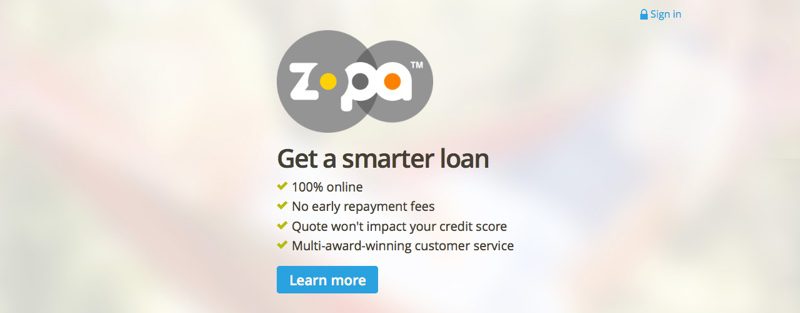Exact rates will not be available until the first of March, but U.K.-based, P2P lending-innovator Zopa is previewing three new lending products: Zopa Classic, Zopa Access, and Zopa Plus. The new products replace a number of Zopa’s current lending solutions, and are geared toward lender preferences in favor of easier access and the “ability to take on more risk.”
“Over the past months we’ve been listening to our lenders about what they want from their lending products,” an email from Zopa read today. “Based on your feedback, we’ll soon offer more choice and be providing benefits from recent regulatory changes, particularly around the tax status of peer-to-peer interest,” the statement said.
The new Zopa products are:
- Zopa Classic
- Return rates from 4% to 5%
- Features Safeguard
- Access fee of 1%
- Zopa Access
- Return rates from 3% to 4%
- Features Safeguard but with “fee-free easy access”
- Zopa Plus
- Return rates from 6% to 7%
- No Safeguard
Most interesting of the new products is Zopa Plus, which the company says will allow institutions to lend to higher risk borrowers. Zopa Plus is the product of performance testing the company has conducted with borrowers in these categories.
Zopa Plus loans are also different from Classic and Access in that they do not include Safeguard, a borrower-funded contribution based on the borrower’s expected default rate. Zopa says this provides a benefit for borrowers who can avoid the higher upfront fee that comes with Safeguard protection, and for lenders willing to accept greater risk for potentially higher returns.
Last month, Zopa earned honors as the Personal Loan Provider of the Year at the Consumer Moneyfacts Awards 2016. Zopa CEO Giles Andrews was interviewed by the Financial Times in December, the same month Zopa announced its partnership with Equifax. And in November, the company was recognized as the “Growing Business of the Year” by Growing Business Awards.
Founded in 2007 and headquartered in San Francisco, California, Zopa made its Finovate debut at FinovateSpring 2008.
